Drywall business. Production and sale of drywall as a business: list of equipment, description of manufacturing technology European equipment for the production of drywall
To date, drywall is the most popular material in the construction market. Therefore, its production is considered very promising and profitable.
But such a business must have a clear plan in order to be profitable. This article will discuss the main points of the production of drywall in bulk, as well as the conditions for business development in Russia.
Drywall is a material consisting of cardboard sheets glued together with a gypsum mixture. Such a sheet (GKL) has a reinforcement that gives it strength due to reinforcing additives.
leaf structure
Due to this structure, GKL have the following advantages:
- ease and simplicity of do-it-yourself installation;
- environmental friendliness;
- moisture resistance and fire resistance;
- mechanical strength;
- good thermal insulation performance;
- the ability to "breathe", which allows the material to absorb excess moisture in the air;
- plastic.
Because of these advantages, drywall has taken first place in popularity as finishing material for do-it-yourself interior work.
Application area
Due to its advantages, drywall is now used everywhere for wall cladding, creating multi-level ceiling structures, columns, partitions, arches, niches and other furniture options with your own hands. In addition, with the help of GKL, you can easily hide communications or surface defects with your own hands.
Thus, the consumers of GKL are a wide variety of construction companies, of which there are a great many in Russia. Therefore, this kind of business has every chance of being successful in Russia if the plan was drawn up correctly and taking into account all the nuances.
perspective

Today, the undisputed leader in the manufacture drywall sheets wholesale is the German company Knauf. It accounts for about 70% of the goods of the entire construction market in Russia. The Knauf company produces in bulk not only drywall, but also all the materials necessary to work with it: putty, glue, profiles, fastening systems, etc.
If you develop the right production plan, as well as conduct a market assessment, then the business in Russia for the production of drywall in bulk will be profitable and quickly pay off. Of course, such a business cannot be compared with the income of Knauf in terms of sales, but it will also be quite profitable and will occupy its niche in Russia.
The building materials market is so huge and in demand that the help of such a giant as the Knauf company in Russia is simply necessary, since the production of drywall is continuous and the number of consumers continues to increase every year. Therefore, the Knauf company and its drywall factory cannot cope with the demand on the market and other manufacturers are entering it.
A business plan correctly drawn up with your own hands and brains, high-quality equipment for the production of drywall and qualified personnel will help you open a profitable and promising business for the manufacture of this building material in bulk.
Where to start
To open a drywall production in Russia and achieve a positive result here, you must go through the following steps:
- raise start-up capital. According to rough estimates, 5-6 million rubles are needed;
- create a business plan;
- rent a business premises;
- buy equipment for the production of drywall;
 Sheet production line
Sheet production line
- purchase raw materials;
- take into account production costs - payment of utility bills, salaries to employees, etc.
Here the most important requirement is a well-written business plan. If you do not have sufficient skills and do not understand business plans, you can always turn to specialists for help. They will quickly develop a business plan that will bring you the expected profit.
Note! For a business to be successful and profitable, there is no need to open a mega concern. You can get quite a good income with a production that produces about 200 sheets per day.
A small wholesale drywall business has the following benefits:
- low power consumption;
- high profitability;
- low cost of paying salaries to workers;
- relatively small start-up capital required to start production.
Remember that with a small productivity, the cost of drywall will be the same as with a powerful production. And from each sheet you will receive about 1.5-2 dollars! In such a situation, the monthly profit will be about $ 10,860, and in 1-2 years the manufacturer will fully recoup its costs.
Premises and equipment
The most important moment for a wholesale drywall manufacturer at the beginning of a business is the choice of premises for launching a production line. The minimum room size is 600 sq.m. In this case, the ceiling height should be 4.5 m. A smaller room simply cannot accommodate all the necessary equipment.
 Production room
Production room
In addition to the size of the room, there are the following conditions for starting the production of drywall sheets:
- the presence of an industrial power grid;
- availability of water supply and gas;
- corresponding temperature regime. The temperature in the room should not fall below 15 ºС, otherwise this will lead to a violation of the technological process;
- Employment of only qualified specialists with experience in this kind of production.
One of the most important moments in this enterprise is the purchase of equipment. With it, the drywall production line will be fully formed. This is the most expensive item in the entire enterprise.
Note! You need to choose equipment very carefully, since production volumes directly depend on it. It is not worth saving here, as cheap equipment will break down more often. Therefore, it is better to immediately buy high-quality equipment that will definitely last a long time and in the long run will cost much less than frequent repairs of cheap equipment.
The list of necessary equipment for launching the line includes:
- a device for producing a gypsum mixture;
- apparatus for continuous supply to the cardboard former;
- the shaper itself, which provides the molding of the gypsum sheet;
- belt conveyor. It must be equipped with additional shapers in the thickness of the web and profile;
- roller conveyor for web cutting;
- sheet conveyor;
- console conveyor;
- dryer conveyor;
- an additional roller conveyor that makes the final cutting of the sheets.
 Equipment for the manufacture of plasterboard
Equipment for the manufacture of plasterboard
All this must necessarily contain a production plan, which you draw up with your own hands or order from specialists.
Required raw materials
Like any production, the wholesale production of drywall sheets requires the purchase of raw materials. For such production, the following types of raw materials are needed:
- gypsum (natural - 85% and artificial);
- facing cardboard. The width of the roll is 1180mm and 1250mm, and the thickness is 0.3-0.46mm;
- 70% modified starch with 11-13% water content. Its alkaline level should be pH 6.5 - 7.5, dust - a maximum of 2% and protein - 3%. The water solubility of starch should be in the range of 73 to 78%;
- synthetic foaming agent having a concentration of mineral salts not higher than 2.5%.
In addition, you will need borogypsum and phosphogypsum. Since both materials are waste products of the chemical industry, their additional purification from impurities is necessary.
The list of impurities according to the established technology includes:
- salt;
- cellulose;
- caustic soda, etc.
All these raw materials are necessary for the production of drywall, corresponding to the international level of quality.
Production technology
Drywall manufacturing technology consists of the following steps:
- preparation of a mixture in a gypsum mixer, which includes water and gypsum powder;
- supply to the line of a cardboard web;
- hitting the mixture on the cardboard in the molding module;
- leveling the mixture with the top layer of cardboard smeared with glue;
- giving the canvas the desired shape.
As a result, we get a finished canvas, which is then cut into sheets right size. Next, the sheets are dried and they are ready for sale.
As you can see, knowing the main nuances and stages of opening a drywall wholesale production business, you can easily cope with the task with your own hands and your skills.
In the production of drywall, the following main materials are used:
* Natural gypsum (CaSO4.2H2O).
* Covering cardboard, the roll width of which is 1250 mm and 1180 mm. Dimensional deviations can be accepted if they do not change the dimensions of the finished product, and do not weaken the adhesive bond of the cardboard layers to each other along the edge.
* Modified starch, with a starch content of at least 70%.
* Foaming agent.
Drywall production technology
The first step in the drywall manufacturing process is the preparation of the gypsum mass. It is used subsequently in the formation of a gypsum tape. Gypsum has excellent technical and physical properties, and to improve its operational properties, certain components are added to it. Technological process obtaining drywall sheets is as follows:
1. A continuous flat strip is formed on the conveyor, with a section of a given shape. It happens in the following way. From the carton feeding machine, the bottom and top sheets of cardboard are fed to the shaper. In it, a pre-prepared gypsum mixture is laid between the canvases. The glue machine lubricates the top layer of cardboard along the edges with glue, and the edges are hardened at the bottom layer. Then both layers are rolled and a drywall sheet with a gypsum core inside is obtained, which is formed into the required profile.
2. During the movement of the drywall sheet along the conveyor belt, the gypsum core is pre-hardened to a density that will be necessary for the subsequent cutting process.
3. The web is then fed onto a high speed roller conveyor. It is cut into sheets using a guillotine. Next, drywall sheets are removed by the transition conveyor and transferred to the cantilever conveyor (distributor). The distributor distributes the sheets to the dryer's six conveyors. The speed of movement of the sheet inside the dryer is reduced and the drywall sheet remains there for about an hour.
4. On the exit conveyor, the already dried sheets descend one by one onto one roller conveyor. On it, the ends of the sheets are cut off by a special machine. The cut-to-size sheets end up on the table, where they are manually stacked and packaged.
To achieve the required performance of the gypsum core, special components are added to it that increase the performance properties. It turns out the main material of dry construction - gypsum board (gypsum board).
Drywall is indispensable in the production of construction and finishing works: the construction of interior partitions, wall cladding and installation suspended ceilings in buildings with dry and normal humidity conditions. And finally, a drywall sheet is a great tool for creating decorative elements interior. Distinguishing properties drywall - its ability to bend, which allows you to give walls, partitions or ceilings any shape, for example, make walls wavy or decorate a doorway with an arch.
The cost of drywall is low, but this material will save you from wet processes that carry with them a lot of labor, wasted time, a lot of dirt and debris.
In addition, drywall is excellent sound quality. The basis of this modern material- gypsum, the one that was used in the fine arts and orthopedics. The same gypsum that has the ability to "breathe", that is, let air through, while maintaining a constant humidity regime in the room. One of the most important properties of gypsum is its environmental friendliness, it does not contain toxic substances. Complete systems made of drywall (gypsum plasterboard) are non-flammable, do not contain toxic elements and have an acidity similar to human skin. In addition, gypsum is not radioactive, provides high sound and thermal insulation, is completely odorless and thermally neutral. A gypsum core glued on both sides with special cardboard (for greater strength and a smoother surface) forms a gypsum panel or slab, which is simply called drywall. Gypsum panels of different brands are produced by construction companies in Russia, Germany, Great Britain, Greece, France, the USA and other countries.
Cardboard plays the role of both a reinforcing frame and an excellent basis for applying any finishing material (plaster, wallpaper, paint, ceramic tiles). So the material is both flexible and hard. It has an acidity similar to that of human skin.
The last two properties allow drywall to regulate the microclimate of the premises. naturally and greatly contribute to the creation of a harmonious atmosphere. Each of the listed properties can be enhanced if you need to assign a drywall sheet for specific purposes.
Fire-resistant are used for finishing all kinds of air ducts and communication shafts. And there are also so-called tongue-and-groove slabs in which gypsum is fired. Their strength increases so much that they can be used as interior partitions, painted, wallpapered or veneered without any preparation. ceramic tiles. Such partitions are one-, two- and three-layer. The latter are applicable in seismically hazardous areas, for residential, civil and industrial buildings of all degrees of fire resistance. In their cavities it is possible to lay electric and telephone cables, dust removal systems, heating and plumbing communications.
The use of this material allows you to create any type of ceiling: ordinary, suspended, multi-level, etc. The plasterboard ceiling is also mounted on a wooden or steel frame. Gypsum panels with a thickness of 9.5 and 12.5 mm, due to their plasticity in the wet state and high resistance to bending in the dry state, with appropriate processing, can turn into convex or concave building elements and into building parts of any configuration, including complex molded surfaces: domes , vaults, cylindrical structures. In this sense, with the help of drywall, any designer's idea can be realized, no matter how daring it may be.
Panels are always bent in length, not in width, and 60 mm wide gypsum panels are best suited for this. Their concave side can be both front and back surfaces. In plasterboard walls, you can install any door and window boxes: wooden, aluminum, steel, plastic.
Drywall slabs not only bend well, but are also perfectly cut with a cobbler's knife and sawn. Using special tools, you can cut the panel to the desired length and width and, if necessary, make a hole in it.
Almost any repair is not complete without drywall. Its popularity and good demand can be explained by the fact that it is ideal as a finishing material, is relatively inexpensive, has excellent sound insulation, is environmentally friendly and non-flammable. Consider the best manufacturers of wall drywall and how to choose the right one. Today in Russia there are 5 most popular drywall manufacturers.
Knauf is a European manufacturer that has its own factories in the Russian Federation. Probably everyone who is related to the repair, heard about this company. First of all, it is famous for using the most modern technologies in the production of drywall and other building materials, which indicates its high quality and long term services.
The drywall produced has a standard size of 2.5 x 1.2 m, but others are also available. The weight of one sheet is different and is produced within 12 - 30 kg.

Despite the fact that this is a brand that produces European quality material, it also has budget options which also meet the German quality standards.
2.Gyproc
Gyproc is an English brainchild of the French company Saint-Gobain, which specializes in gypsum materials. Since 2003, it has been a leader in the production of plasterboard products.

Wall plasterboard «Gyproc»
A distinctive feature of the brand is the absolute environmental friendliness, because. only 100% environmentally friendly materials are used in production. In addition, the production of especially light sheets, which have 20% less weight compared to the standard, has been launched.
Lafarge - This French company has set one of the lowest prices for drywall products compared to other brands. This is explained by the fact that she has the most a large number of productions around the world. Quantity does not harm quality and they produce only high quality products. This company differs in that Special attention pays to the processing of the edges of the sheets, which makes the products perfectly even.

Plasterboard Lafarge
"Volma" is the only original Russian manufacturer of drywall products, which is in great demand on the territory of our country. The first, on the territory of the Russian Federation, produced drywall with increased level moisture resistance. The plant, located in Volgograd, is guided by European standards, which allows it to produce high-quality products using the latest technologies. All of the above contributes to the manufacture of high-quality products at a low price.

Rigips – Like Gyproc, this Polish company belongs to the world's largest gypsum plasterboard group, VRV. Modern technologies production and the latest equipment allows you to get quality, for which you are not ashamed.

Drywall "Rigips"
How to choose drywall?
First, you need to decide what type of drywall you need. Depending on their purpose, the following types are distinguished:
- Wall (GKL).
- Ceiling. It is one of the cheapest among the rest, due to its small thickness of 9.5 mm and less than that of the wall length - 2 or 2.5 m. The color of the cladding is light gray. In all other respects, it is no different from the previous type. The presented type of GKL is used both for sheathing ceilings and for the manufacture of ceiling structures in several levels, arches and niches.
- Moisture resistant (GKLV). Made in green with blue markings. The dimensions are exactly the same as those of the wall. The main difference is the special composition from which the core and the material itself are made, which allows this type not to be afraid of moisture. They are mainly used for rooms with excessive humidity.
- Fire resistant (GKLO). It has standard sizes(like wall and moisture resistant), but made in light gray, and all markings are in red. It differs from the rest in its composition, in which there are many fibers and additives that contribute to reinforcement. It finds its application where there are high requirements for fire safety.
- Moisture-resistant (GKLVO). Combining the properties of fire resistance and moisture resistance, it has standard sizes.
- Arched (flexible). Because it is used in the manufacture complex structures, where bending at a large angle is possible, it has the smallest thickness of all - 6.5 mm. For this reason, it is usually used in two layers. For him, the standard length is 3 m, and the width, as a rule, is 1.2 m. It is painted in light gray.

When choosing this material, it is important to take into account the nuances that will protect you from disappointment in the purchase and ensure a guaranteed service life of products built from it:
- When choosing, it is important to take into account the features of the room where drywall will be used. That is, at high humidity - moisture resistant, with high fire requirements - fire resistant, for wall decoration - wall and so on.
- When buying, thoroughly inspect all sheets for mechanical damage and correct shape. If you see the label "Packing list" on a sheet of drywall, do not take it. The manufacturer gives this sheet free of charge, because. during transportation, it is the main one on which other sheets are folded. As a rule, it always has damage.
- The choice of sheet size is also important point. It must be selected, taking into account the installation features of your premises: it is easiest to work with small ones, but more joints are obtained. For walls, use a width of 12.5 mm, and for bends and other complex structures, 6 or 9 mm.
When purchasing a set of materials, carefully inspect the profile to which you will mount drywall. It should be metallic, uniform and shiny over the entire surface. There shouldn't be any damage either.
Finishing material is in demand in the construction and repair of many facilities, the technology for making drywall is quite simple, and the demand for it is steadily growing, so there are no difficulties with the sale of products.
This sheet material is necessary for the construction of wall partitions, leveling walls, mounting ceilings, creating niches, shelves, arches and other decorative and functional elements.
The sale of FCL is carried out by many companies, and several types of drywall sheets (GKL):
- Suitable for use in rooms with humidity up to 70%.
- Moisture resistant. The gypsum structure includes silicone granules, so the sheets can withstand 80-85 percent humidity.
- Fire resistant. Due to the fiberglass included in the composition, they do not collapse under the influence of high temperatures.
- Moisture resistant. Combine the characteristics of the two above-mentioned types of GKL.
Drywall production technology allows you to get sheets of certain sizes, but for convenience, all manufacturers adhere to standards:
- length 250 or 300 cm;
- width 120 or 130 cm;
- thickness from 0.8 to 2.4 cm.
Documents for the production of drywall
To start your own mini-plant for the production of drywall, it is better to register entity as OOO.
At individual entrepreneurs also have the right to work in this direction, but the activity is limited.
To register an LLC, you need to prepare a package of documents:
- an application for registration and a decision of shareholders to establish an LLC;
- charter of the company with a legal address;
- photocopies of passports of the director and chief accountant.
All this must be submitted to the registration authority and additionally open a bank account.
For the manufacture of GKL, you must specify the appropriate OKVED. We are interested in section C and code 23.62 , involving the production plaster products for the construction industries.
We select a room
- (185)
- (102)
The building materials market in Russia is mainly overflowing with the products of four fairly large drywall manufacturers: English "Gyproc" (Giprok), French "Lafarge" (Lafarge), German "Knauf" (Knauf) and Austrian "Rigips" (Rigips). Even if the products are manufactured at affiliated plants in Russia, and not in Germany, Austria or France, they are of good quality.
Knauf Corporation has taken a leading position among manufacturers of dry building mixtures and drywall. This international group includes more than 120 factories in over 30 countries in Europe, South America, the USA and Asia. Two brothers (Germans by nationality) - Alfonso and Karl Knauf, about seventy years ago founded the company "Knauf", which today is the leader in the construction complex in Russia, Moldova, Kazakhstan and Ukraine.  The company is the largest German investor in the industry in these countries, which produces high-quality products with the involvement of local staff. This company for the first time opened in Russia its TIGI-Knauf plant in the city of Krasnoyarsk, which produces tools and Construction Materials full cycle of interior decoration. In addition, several more factories in Russia were bought by this company.
The company is the largest German investor in the industry in these countries, which produces high-quality products with the involvement of local staff. This company for the first time opened in Russia its TIGI-Knauf plant in the city of Krasnoyarsk, which produces tools and Construction Materials full cycle of interior decoration. In addition, several more factories in Russia were bought by this company.
Gyproc Co. is aimed at the production of only gypsum materials and belongs to the group "ВРВ" ("British Plaster Board"). To date, experts have repeatedly recognized the drywall of this brand as the most reliable among its counterparts. Gyproc supplies products to Russia from factories located in Poland, Finland, England, Denmark and Sweden.
Rigips company (Austria) refers to VRV, the world's largest group that produces gypsum products all over the world. The English "VRV" bought shares of the brand "Rigips" more than twenty years ago and quickly began to produce dry mixes, building plaster and drywall with that name. The company has 80 factories located all over the world. VRV supplies its products to more than 35 countries.
Concern «Lafarge» (France) representative of a major manufacturer of building materials. The company owns factories producing drywall in Italy, France, Germany, Holland, Poland, Turkey. In 2002, Lafarge installed German equipment in Poland and began manufacturing products under the Nida Gips brand. Most of the products on the Russian market are supplied by Lafarge Gips, which is represented by the Lafarge Nida Gips division.
In the Russian market, in addition to the listed brands, there are also quite large and successfully proven drywall factories. We propose to consider their activities in more detail.
"Knauf gypsum Dzerzhinsk", Nizhny Novgorod region
The company produces dry building mixtures based on gypsum binders and gypsum fiber sheets. The company was founded in 1986 under the name Avangard. In 1995, Gebr.KNAUF Verwaltungsgeselschaft (Germany) won a controlling stake in Avangard and undertook to invest in the company through the supply of equipment and cash.
In 1996, the enterprise began to modernize the production line and overhaul. In 2004, the enterprise was transformed from Avangard OJSC into Knauf Gips Dzerzhinsk LLC.
Products manufactured by Knauf Gips Dzerzhinsk:
- gypsum sheets;
- building gypsum;
- dry floor elements;
- construction dry mixes.
Today, Knauf Gips Dzerzhinsk is developing well in the building materials market.
"Knauf gypsum Kolpino", St. Petersburg
 The Knauf firm launched lines at the Knauf gips Kolpino enterprise for the production of dry building mixtures, tongue-and-groove slabs, metal profiles for Knauf complex systems.
The Knauf firm launched lines at the Knauf gips Kolpino enterprise for the production of dry building mixtures, tongue-and-groove slabs, metal profiles for Knauf complex systems.
Knauf gypsum Kolpino is the main supplier of Knauf systems, as well as individual elements in Russia (North-West region).
The main activity of the company is the production of gypsum. But besides this, the company demonstrates other activities, such as:
- development of stone quarries;
- mining of gypsum stone, chalk and limestone;
- development of sand and gravel quarries;
- production of concrete dry mixes, etc.
"Knauf gypsum Chelyabinsk", Chelyabinsk
 The company is built on imported equipment (contract with the Federal Republic of Germany). The company is located in the city of Chelyabinsk, in its industrial zone. Convenient access roads are equipped near the enterprise and the company itself is located near the railway station, which ensures uninterrupted supply of products and delivery of raw materials.
The company is built on imported equipment (contract with the Federal Republic of Germany). The company is located in the city of Chelyabinsk, in its industrial zone. Convenient access roads are equipped near the enterprise and the company itself is located near the railway station, which ensures uninterrupted supply of products and delivery of raw materials.
In 1985, Knauf Gips Chelyabinsk produced an experimental batch of gypsum-fiber sheets, and in 1989 brought the production of gypsum-fiber sheets to full capacity.
The company produces high-quality building materials for the reconstruction and construction of facilities social sphere and housing: dry building mixtures (putty, adhesive and plaster), gypsum-fiber sheet.
At the enterprise in 1997, the Knauf company began its activities. Employees of the plant, together with Knauf specialists, conducted a deep technical analysis of the enterprise's activities and outlined an investment program. Thanks to the joint efforts of German and Russian specialists, the program for the reconstruction of production was successfully completed and the quality of products was improved.
The firm "Knauf gypsum Chelyabinsk" supplies its products to many regions of Russia: Far East, Ural, Siberia and others.
"Volma", Volgograd region
This enterprise is the largest drywall manufacturer in Russia and occupies pride of place in the construction industry. The beginning of the history of this company can be called 1943, when they began to build the first enterprise, which later became part of Volm - the Volgograd gypsum plant. In order for the destroyed and liberated Stalingrad after the Great Patriotic War rebuild, built this plant (1943).
The production of the company continuously gained momentum until 1991. This year was the most high rate production of plasterboard sheets and gypsum. Further, the number of products gradually decreased. As a result, huge debts to the budget, labor collective and suppliers were accumulated, sales markets were lost.
In 1999, the plant was acquired by new owners and launched its modernization, thus giving rise to the revival of the plant. Since then, the company has confidently held a leading position in the building materials market in Russia.
Gifas, Sverdlovsk region
 This plant is the largest in the Ural region and produces building materials. Among the activities of this enterprise is the fact that it is processing environmentally friendly, natural raw materials (gypsum stone), which, in turn, is the main component in the production of drywall; tongue-and-groove gypsum boards and dry building mixtures (plasters, self-leveling floors, putties).
This plant is the largest in the Ural region and produces building materials. Among the activities of this enterprise is the fact that it is processing environmentally friendly, natural raw materials (gypsum stone), which, in turn, is the main component in the production of drywall; tongue-and-groove gypsum boards and dry building mixtures (plasters, self-leveling floors, putties).
The company produces components for street improvement: side stones, concrete paving slabs, concrete slabs for tram tracks, curbs, concrete wall stones.
Quality control is carried out at each stage of the production of the products of this enterprise, which makes it possible to produce products that fully comply with the requirements of GOST and TU.
"Gypsum polymer", Perm region
The company started its work in 1953. In 1993, it was privatized and was given the name "OJSC" GYPSOPOLIMER". The company maintained a close relationship with advanced enterprises, thanks to which it achieved the positive development of the plant. It was distinguished by high technological discipline, qualified workforce, experienced engineering and technical personnel, and a culture of production.
One of the main advantages of this enterprise is the presence of its own raw material base. The company is actively investing in the development of its infrastructure and production facilities, the plant is dynamically expanding its area, increasing capacity, modernizing production.
In 2007, the enterprise carried out a large-scale reconstruction of production, launched a new rotary gypsum kiln.
The company, together with the Knauf company, modernized the drywall production line, and also built a mini-factory specializing in the production of dry mixes based on gypsum.
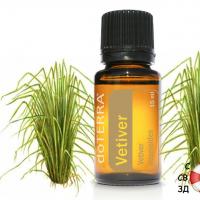 Vetiver Essential oil. Application. Wonderful vetiver oil Vetiver oil in magic
Vetiver Essential oil. Application. Wonderful vetiver oil Vetiver oil in magic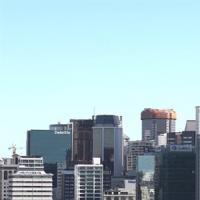 The safest countries in the world
The safest countries in the world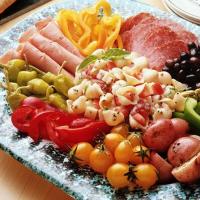 What do the Chinese eat - Chinese chopsticks and other utensils in China Do the Chinese eat meat
What do the Chinese eat - Chinese chopsticks and other utensils in China Do the Chinese eat meat X-ray densitometry What is densitometry
X-ray densitometry What is densitometry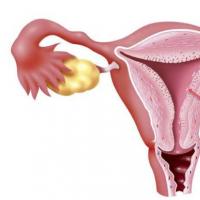 Is it possible to increase and increase the thickness of the endometrium to normal when planning a pregnancy for conception?
Is it possible to increase and increase the thickness of the endometrium to normal when planning a pregnancy for conception? Nutrition without diets from Cindy Crawford
Nutrition without diets from Cindy Crawford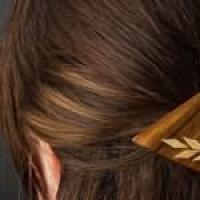 Hairpin interpretation of the dream book Why dream of buying a hairpin
Hairpin interpretation of the dream book Why dream of buying a hairpin